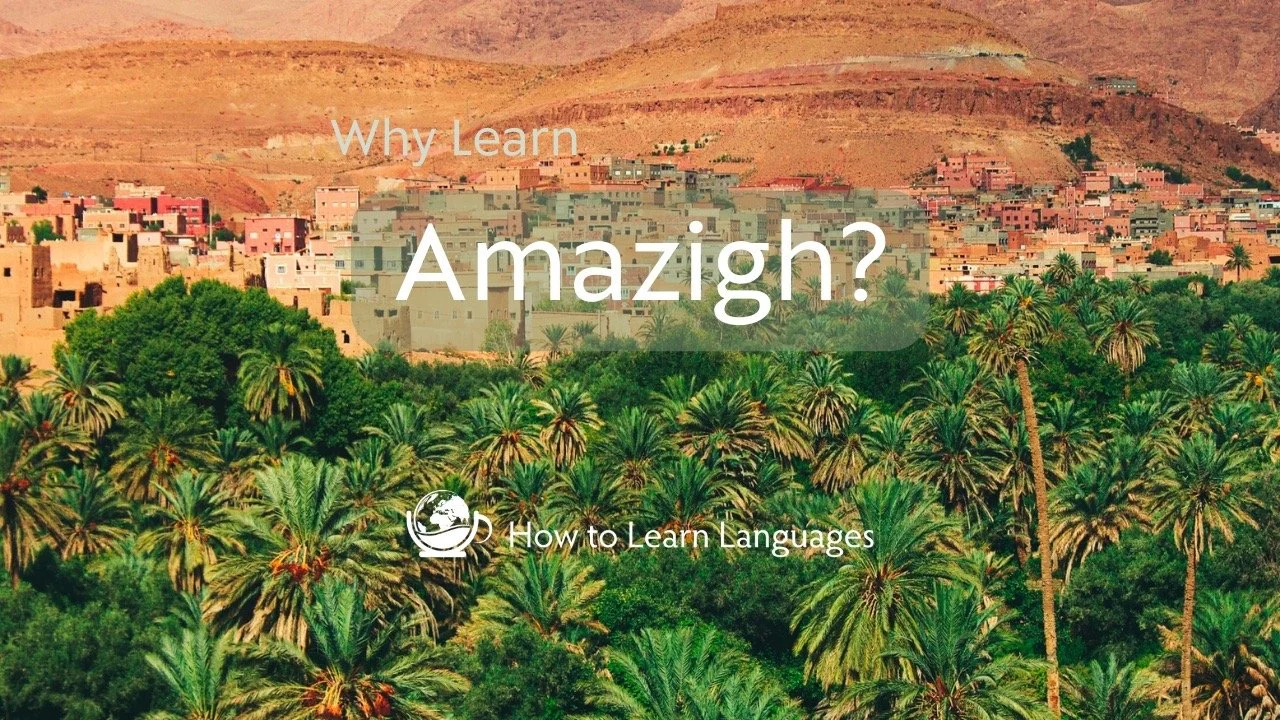Why Learn Amazigh Languages?
Why learn languages?
Though it’s true a second language can help us find jobs, let’s also focus on the other reasons for learning a language. We spend so much of our lives having to serve the interests of an economy that doesn’t care about people or the world. It’s high time we were able to put the interests of each other ahead of those of CEOs and tax havens. Learning a language, in a variety of ways, can help us do this.
Society often funnels us down a career-path. Before we’ve had the chance to discover where our passions reside, we find ourselves scrambling from paycheck to paycheck on low or minimum wages. Worse still, the labour we provide either leaves us starved of inspiration, or in some cases even robs us of time to pursue our interests - all of which has damaging implications for our mental and physical health.
Learning a language can provide some relief, and even an escape, from these pressures. It can’t stop us worrying about bills or rent, but it can help us find other lines of work. Aside from potential career benefits, the process itself is rewarding, and a lot more fun than traditional methods have led us to believe. Far from being an unwelcome burden on our daily routines, learning a language can become an enjoyable distraction from life’s pressures. As well as helping our immediate mental health, it is also thought to aid cognitive function, and could delay the symptoms of dementia.
Learning a language may even help us tackle the problems facing the world. If we can communicate with and learn from each other, we stand a better chance of organising against issues as global as climate breakdown.
What are the Amazigh languages?
The Amazigh languages are a group of closely related languages and dialects spoken by the Amazigh people, predominantly in North Africa. The Amazigh are sometimes known as Berbers in English, although Amazigh or Imazighen are the proper terms.
Estimates vary, but the number of speakers of Amazigh languages today is likely to be anywhere between 20 and 30 million. The largest Amazigh languages and dialects by number of speakers are in Morocco and Algeria, and to a lesser extent Libya, Tunisia, northern Mali, and northern Niger. There are also smaller communities in Burkina Faso, Egypt, and Mauritania, as well as significant emigrated communities in France, the Netherlands, Belgium, Spain, Germany, Italy, Canada, and the United States.
The classification of languages and dialects depends on how someone chooses to define these terms, but regardless of such distinctions, the Amazigh languages are closely related. A significant factor for most people is mutual intelligibility, and this can vary significantly between the Amazigh languages and dialects.
In recent years, there has been a growing movement to develop a standardised form of Amazigh among speakers of the closely related varieties of the Northern Amazigh languages. The name for this language is Tamazight (Tamaziɣt), or standardised Tamazight. The name Tamazight is also used to refer to the Central Atlas Tamazight variety of Amazigh, but is sometimes used to refer to other languages and dialects from the Atlas group of Amazigh languages as well.
Unfortunately, some Amazigh dialects have gone extinct. For example, Amazigh dialects were once spoken in southern Egypt and northern Sudan, whilst Guanche was spoken by the indigenous people of the Canary Islands - the Guanches.
The Amazigh languages and dialects have a written tradition dating back 2,500 years. Although the Latin script is sometimes used, the Amazigh languages have their own script, known as Tifinagh. In the Tifinagh script, the Amazigh languages are known as ⵜⴰⵎⴰⵣⵉⵖⵜ.
Why learn Amazigh languages?
Although speaking a new language does not revolutionise how you see the world, the people and cultures it takes you to will. It's almost like discovering the world again as a child, just in a different tongue. It refreshes the mind and can fill you with the impetus to experience different cultures and meet new people. This could be as conveniently as watching Amazigh films or reading an Amazigh novel in the evening. It could be an experience as spontaneous as chatting with people at a bar in Agadir, or before a football match in Béjaïa. It could even be a whole new life in Morocco or Algeria.
After learning any language, the prospect of learning others suddenly feels much more feasible, and this is especially true for languages that share similarities. After learning one of the Amazigh languages or dialects, you’ll find it easier to learn other varieties of Amazigh.
Chances are that if you’re reading this, you already have an idea of why you’d like to learn an Amazigh language or dialect. Whether it’s for professional reasons or pure curiosity, I hope these paragraphs have given you a brief sense of the benefits learning Amazigh, or indeed any language, can bring.
If you're interested in learning an Amazigh language or dialect, more information and resources can be found on its Get to Know page here on the How to Learn Languages website :

